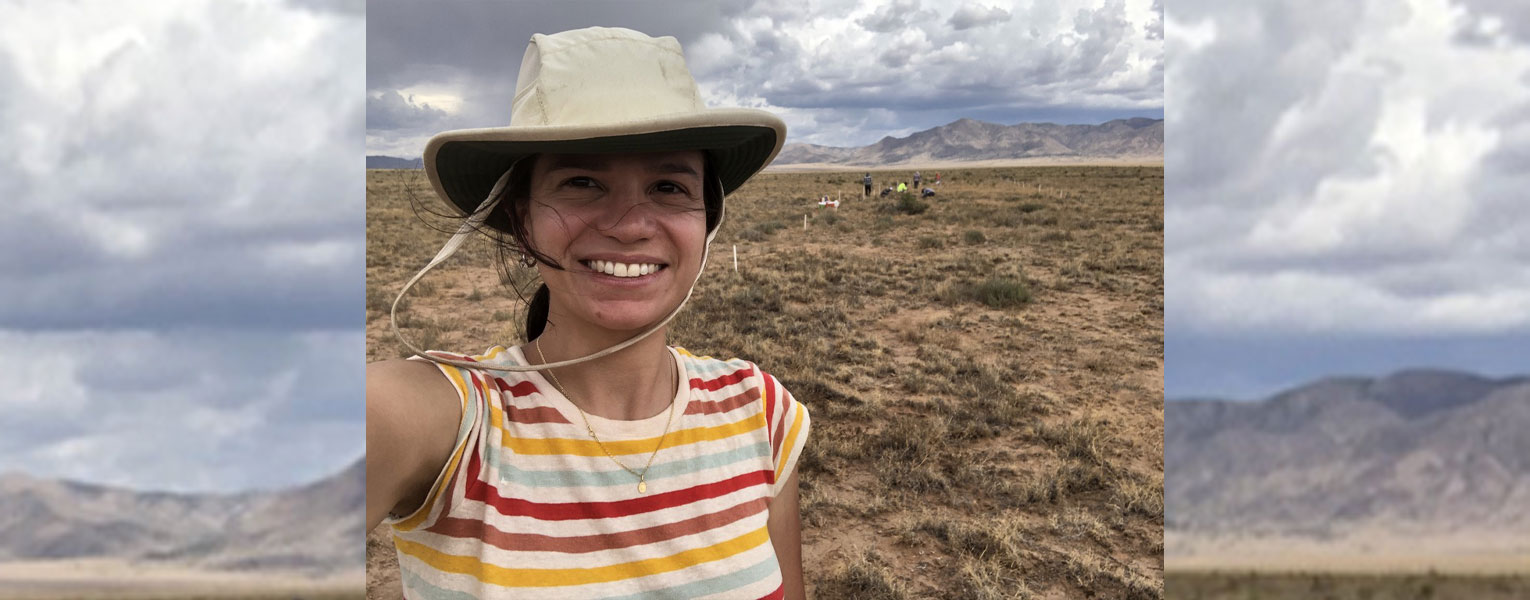12/5/2023
World Soil Day: Vanessa Fernandes, Ph.D.
Changes in the Microscopic World
By Bethany Augliere
Growing up in a coastal town of Brazil, Vanessa Fernandes, Ph.D., said she loved nature and the ocean, and thought she wanted to be a marine biologist to study big animals, like whales, dolphins and sea turtles. However, after a college course in microbiology Fernandes said she fell in love with the microscopic world — bacteria, fungi and viruses.
“I think it was the realization that these things that we don't even see affect our daily lives so much,” she said. “I thought I wanted to work with these gigantic animals, but these things that I didn't even see made a bigger difference in everyone's lives and I could make a bigger difference by studying these things.”
As a new professor in the FAU Charles E. Schmidt College of Science, Fernandes studies the impact of climate change on the microbial community, particularly in deserts. For instance, she is curious how heat and removal of moisture from the environment impact the microbes’ function and physiology and the interactions amongst different organisms.
One out of three people live in drylands and deserts, which are regions without water, and they take up about 41% of land on Earth’s surface, according to the United Nations. In these regions, microorganisms are one of the most important components of the environment, Fernandes said, providing a crucial role in cycling nutrients and supporting plant growth.
In the lab, Fernandes tests how microbes respond to various stressors to find the best combination that are resilient to higher temperatures and drier climates. Ultimately, she said she wants to help restore damaged and protected vulnerable ecosystems by creating a microbe cocktail that could be injected into the soil. “After we figure out the sweet spot of microbes that work better together, we can manipulate these communities in the field.”
Prior to FAU, Fernandes was a postdoctoral fellow at the University of New Mexico. In 2020, she earned a doctorate in microbiology from Arizona State University, and a bachelor’s degree in biology from the Universidade Federal do Ceara, Brazil.
Since coming to FAU, Fernandes is expanding her work to the Florida Everglades ecosystem. She recently collaborated on a grant to examine interactions between microbes and seagrasses. She said she wants to understand how microbes in the roots of seagrass could help protect against the negative impacts of climate change, such as the predicted increase in sulfur due to higher temperatures, which can stop growth and stress, or even kill, seagrasses, she said. In addition to future threats from sea level and temperature rise, seagrasses in Florida already face threats from human activity, like dredging and pollution. But, they are critical for the ecosystem, including shelter and food for fish, crabs and manatees, as well as maintaining water quality by trapping particles with their leaves. For Fernandes, finding ways to help these grasses is crucial.
“We want to understand how these microbes, seagrass and sediment interact and how the microbes can help counteract effects of climate change to help the seagrasses grow.”
If you would like more information, please contact us at dorcommunications@fau.edu.
